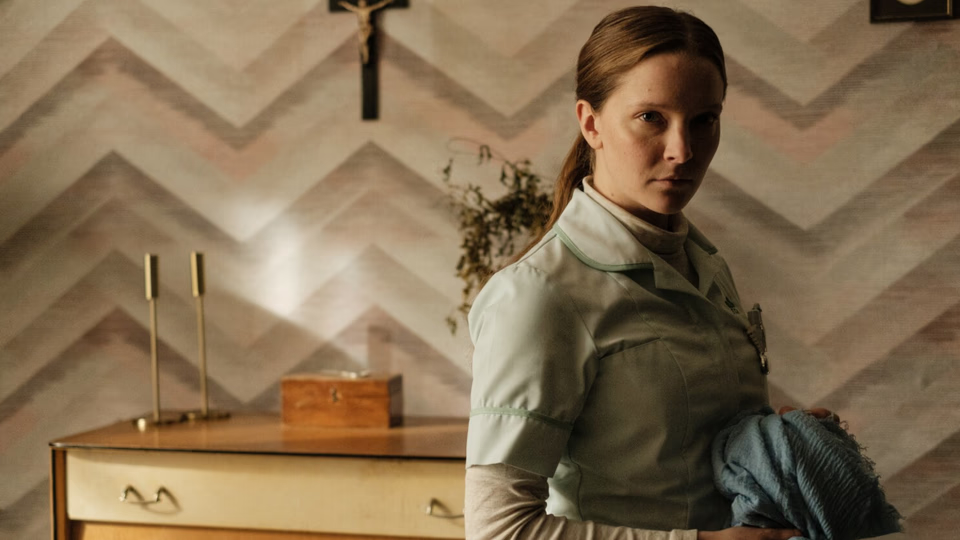Saint Maud

I wanted to like this more. In an English seaside town, Maud, a pious young nurse, arrives to care for a dying former dancer. Maud’s charge ridicules her religious sincerity, but Maude remains resolute, determined to save the woman’s soul. The film explores the psychological horrors of a slow death and dissociative obsession. Spoilers follow.
I loved the atmosphere. A shadowy Victorian house haunted by the ever-present specter of death overlooking a town where neon-lit casinos contrast the calm seaside views.
The story has potential too, but the execution proves too self-conscious. The film hints early that Maud’s faith may have a supernatural origin, then hurries to walk this angle back—as though it regards speculative fiction as second class. But establishing Maud as delusional weakens the film. By placing us outside Maud’s perspective, we know what’s real and what isn’t. She’s off balance, but we’re not.
The film delivers a memorable closing sequence where Maud immolates herself. The finale hard cuts from her delusional vision of angelic sacrifice to the gruesome reality. But what if we didn’t know she was delusional? What if we thought we’d just watched her battle a demon for possession of a soul? If we had no reason to doubt her perspective, imagine the gut punch that final scene would have packed. A missed opportunity.